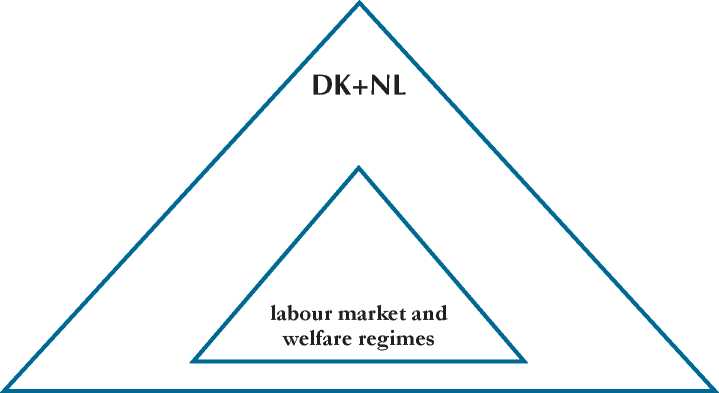Aliki Mouriki
ated with a weak enforcement capacity of the state (despite a formally rigid regulatory framework),
as well as with a widespread belief that “all are not equal vis-à-vis the law”.
Trust in the institutions (domestic as well as international) and in the quality of enforcement
mechanisms constitute an essential aspect of democratic and effective governance. Dysfunctional
domestic institutions tend to reproduce the vicious circle of mistrust, lack of consensus and inef-
fectiveness. If institutions such as the national government or the legal system are viewed as weak
and unaccountable, citizens are less likely to trust them, to adhere to their decisions and to respect
their authority. Moreover, a low level of credibility of the political system and of the enforcement
mechanisms drastically undermines the willingness of people to accept change and far reaching re-
forms. The success story of Denmark and the Netherlands would not have been possible if their
labour market and welfare regimes were not embedded in an institutional environment enjoying a
high degree of social legitimacy and trust. The famous “golden triangle” that accounts for the success
of the flexicurity agenda in Denmark in particular (and its Dutch variant), would not have been able
to deliver these results if it was embedded in a dysfunctional and low trust institutional environment
(see Diagram 10). By contrast, the fragile institutional arrangements in Greece (present and past) and
the absence of a common vision for the future allow little scope for successful labour market and
welfare reforms (see Diagram 11).
Diagram 10: The institutional environment
consensus culture / trust

strong institutions shared awareness of
(high legitimacy) the issues at stake
Page • 90
More intriguing information
1. The name is absent2. Job quality and labour market performance
3. The name is absent
4. Food Prices and Overweight Patterns in Italy
5. The Provisions on Geographical Indications in the TRIPS Agreement
6. The name is absent
7. The Macroeconomic Determinants of Volatility in Precious Metals Markets
8. A Study of Prospective Ophthalmology Residents’ Career Perceptions
9. Migration and employment status during the turbulent nineties in Sweden
10. ALTERNATIVE TRADE POLICIES